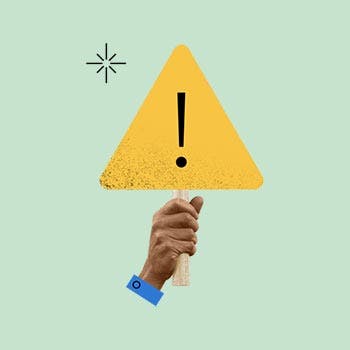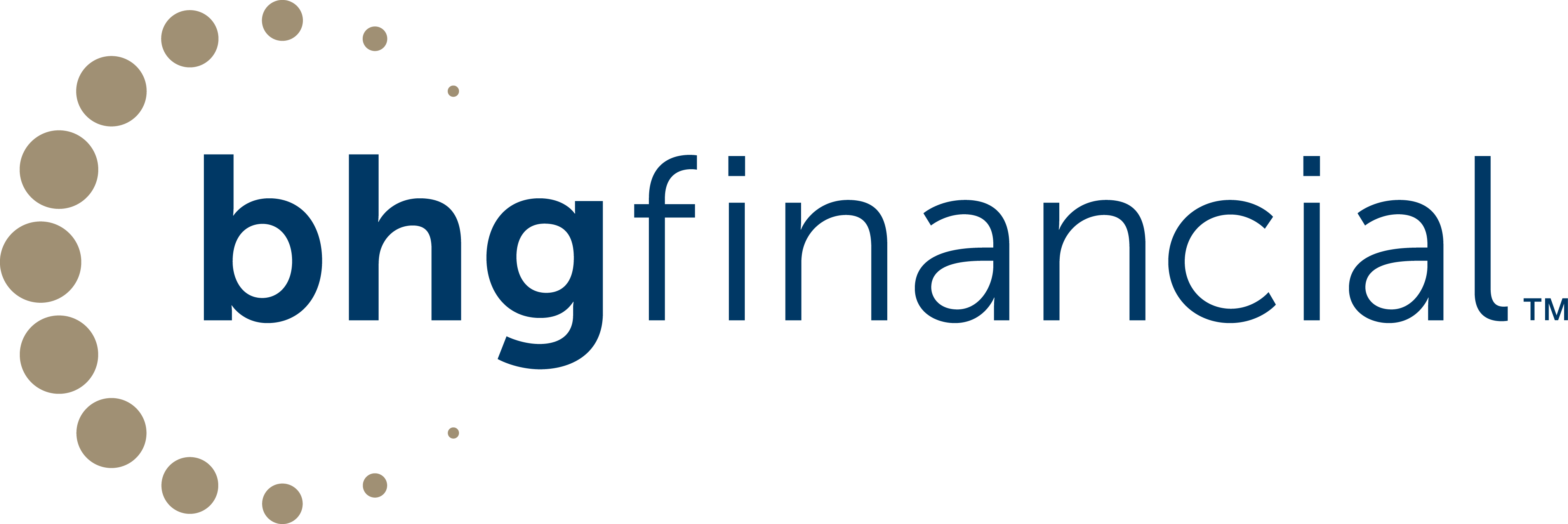Personal Loans: Compare Rates 2025
Handpick your loan. Right Loan. Right Here. Compare personal loan offers and see your Approval Odds** before you ever click apply.
 Image: Woman in Circle holding a fan of dollar bills
Image: Woman in Circle holding a fan of dollar billsThe offers that appear on this site are from third party advertisers from which Credit Karma receives compensation. This compensation may impact how and where products appear on this site (including, for example, the order in which they appear). It is this compensation that enables Credit Karma to provide you with services like free access to your credit scores and free monitoring of your credit and financial accounts at no charge. Credit Karma strives to provide a wide array of offers for our members, but our offers do not represent all financial services companies or products.
Common uses for a personal loan
Debt Consolidation
Home Improvement
Unexpected Costs
Same-Day Loans
Bad Credit Loans
Tell us what you are looking for.
 Image: pl bullseye icon
Image: pl bullseye iconLoan Offers tailored to you
Log in or sign up to see offers that are personalized to your financial profile.
Here are a few lenders you’ll find on Credit Karma
Credit Karma earns a commission from these loan providers. Looking for our editors’ picks instead?
Hear from our editors: 5 best personal loans of 2025
Updated January 9, 2025
This date may not reflect recent changes in individual terms.
Editorial Note: Intuit Credit Karma receives compensation from third-party advertisers, but that doesn’t affect our editors’ opinions. Our third-party advertisers don’t review, approve or endorse our editorial content. Information about financial products not offered on Credit Karma is collected independently. Our content is accurate to the best of our knowledge when posted.
Written by: Jennifer Brozic
When you need money, personal loans may provide the extra funds you need, whether you want to consolidate credit card debt, pay off medical bills or make home repairs.
Here’s our take on the best personal loans on the market — sorted by features and uses — to help you decide which one may be right for you. We’ll also give you a rundown of what you should know when shopping for a personal loan and tips on how to choose the best personal loan for you.
- Our picks for the best personal loans
- How we picked these loans
- What you should know about personal loans
- Personal loan terms to compare
- Tips on choosing a lender
Our picks for the best personal loans
We analyzed dozens of personal loan lenders and selected our top picks for the best personal loans out there, sorted by what we believe makes the loan stand out.
Best for home improvement: LightStream
Why LightStream stands out: LightStream — the online lending division of Truist Bank — offers personal loans ranging from $5,000 to $100,000, making it possible for you to tackle home improvement projects from small to large.
If you don’t want to (or can’t) use home equity to fund improvements, LightStream might be a good option. The lender offers very competitive interest rates and promises to beat other lenders’ rates in certain circumstances.
- Good credit required — Without a strong credit profile, you may have difficulty qualifying for a loan with LightStream.
- No-fee promise — LightStream doesn’t charge fees like origination or application fees or charge a prepayment penalty for early repayment of its personal loans.
- No option to prequalify — You can’t check rates and terms without affecting your credit scores. Applying for a personal loan with LightStream will generate a hard credit inquiry, which may lower your credit scores.
Read reviews of LightStream personal loans to learn more.
Best for bad credit: NetCredit
Why NetCredit stands out: NetCredit looks at factors beyond your credit scores when evaluating your loan application. Plus, NetCredit reports payments to “major credit bureaus,” which can help you build your credit history if you make all your payments on time as agreed.
NetCredit also offers access to online financial education to help improve your knowledge about a range of financial topics, including budgeting, credit scores, saving and more.
- High interest rates — Because NetCredit works with people who have bad credit, the interest rates the company offers are higher than what you may find from other lenders. But NetCredit’s rates are lower than what payday lenders typically charge.
- Fees — NetCredit charges late fees in some states. But there are no fees for paying off your loan early, which can save you on interest charges, or for insufficient funds.
- Ability to prequalify — If you’re eligible to receive a loan from NetCredit, you’ll receive an offer with estimated rates and loan terms. NetCredit uses a soft credit inquiry, which doesn’t affect your credit scores, to make you a prequalification offer. If you accept the offer, a hard inquiry will be generated. A hard inquiry may negatively affect your credit scores for a short time.
Read reviews of NetCredit personal loans to learn more.
Best for building credit: Upstart
Why Upstart stands out: Upstart is a lending marketplace that says it considers nontraditional factors, such as education and job history, when making loan decisions. If you’re trying to improve your credit scores, Upstart may be an option, as the lender considers applicants with lower credit scores.
Upstart offers personal loans ranging from $1,000 to $50,000 and repayment terms of three or five years.
- Range of interest rates — Upstart’s interest rates range from competitive to relatively high. The lender’s rates are determined by factors such as an applicant’s credit, annual income, education and job history.
- Prequalification available — When you apply for prequalification, Upstart uses a soft credit inquiry, which doesn’t affect your credit scores, to provide estimated loan amounts and terms you might qualify for. But prequalification doesn’t guarantee approval. And if you are approved, your loan amount and terms might be different than what you saw when you applied for prequalification.
- Potentially fast funding — If your loan application is approved and you accept your loan terms by 5 p.m. Eastern time, Upstart says you’ll typically receive your loan funds by the next business day. When you can actually access those funds will depend on your bank.
Read reviews of Upstart personal loans to learn more.
Best credit union for personal loans: Alliant Credit Union
Why Alliant stands out: You must be a member to apply for a loan from Alliant Credit Union, but it’s not difficult to join. If you’re a member or decide to become one, Alliant Credit Union offers competitive rates, debt protection plans and sometimes even same-day loan funding.
- Competitive interest rates — Alliant Credit Union offers competitive interest rates on its personal loans, which vary based on the loan term. Loans with shorter repayment periods have lower interest rates than loans with longer repayment terms.
- Debt protection plan — With Alliant Credit Union’s debt protection plan, your monthly payments may be suspended or canceled due to disability, involuntary unemployment or death — without additional interest, penalties or impact to your credit scores.
- Loan amounts — Alliant Credit Union offers personal loans in amounts ranging from $1,000 to $100,000 with repayment terms of 12 to 60 months.
Read our full review of Alliant Credit Union personal loans.
Best for extra perks: SoFi
Why SoFi stands out: When you get a personal loan through SoFi, you may be eligible for a number of extra perks, including access to financial advisors and member events. Plus, you’ll get support from SoFi’s online community, referral bonuses, and access to networking events designed to help you meet other SoFi members.
SoFi offers loan amounts ranging from $5,000 to $100,000 and repayment terms of two to seven years.
- Competitive interest rates — SoFi offers competitive rates. If you’re approved for a loan, your actual rate will be determined based on your credit profile, loan term, annual income and other factors.
- Fees — SoFi doesn’t charge a prepayment fee that penalizes you for paying off your loan early. And you won’t be charged a late fee if you don’t make your payment on time — but we don’t recommend making late payments because they’ll negatively affect your credit scores. SoFi loans have origination fees that range from 0% to 7%.
- Ability to prequalify — When you apply for prequalification, SoFi uses a soft credit inquiry. This allows you to check your estimated interest rate and loan term without affecting your credit scores. Just remember that prequalifying doesn’t guarantee you’ll be approved for a loan. And if you’re approved, your rate and term may not match what you saw when you applied for prequalification.
Read reviews of SoFi personal loans to learn more.
How we picked these loans
We reviewed more than two dozen personal loans to come up with our best picks. The criteria we weighed most heavily in our decision included interest rates, fees, loan amounts, the ability to prequalify, credit required and other perks, such as resources designed to help protect and improve your financial health.
What you should know about personal loans
There are many factors to consider when deciding if a personal loan is right for you, including interest rates, fees and repayment terms. Finding the best personal loan for you will take a little bit of work, but it’s worth the effort to get the best available offer from a reputable lender.
Many financial institutions, like credit unions, online lenders and peer-to-peer lenders, offer personal loans. But loan terms and conditions — which ultimately affect the total amount that you’ll have to pay back — can vary from lender to lender. That’s why it’s important to do your homework before you apply.
Where to start when shopping for a personal loan
You may want to start with the bank or credit union where you have your primary checking account or banking relationship. But if your bank doesn’t offer personal loans or you don’t think it’d be a good fit, you can do some online research to get headed in the right direction.
Consider using multiple online sources for information instead of relying on just one site to make your decision. Here are a few you may want to check out.
- Company websites — Many companies have websites where you’ll find details about loans and their rates, terms, fees and more. You’ll typically find the lender’s contact info online as well, so you can reach out if you need more info.
- Trusted online sources — Sites that are dedicated to educating people about financial services often provide information about loans and compare offers from popular lenders.
- Online reviews — You can find out what customers are saying about lenders by reading online reviews. Just remember that no matter what a customer review says (good or bad), there’s no guarantee you’ll have a similar experience with the lender.
- Consumer Financial Protection Bureau — The CFPB is a government agency created to ensure people are treated fairly by financial services companies. The site contains a searchable database where consumers can look for complaints filed against companies.
Personal loan terms to compare
Getting a loan is a big decision that can affect your finances for years.
Here are some personal loan terms to compare and consider.
Interest rates
Your interest rate is typically the factor that will have the biggest influence on how much you pay over the life of a loan, so the goal is to get the best rate possible. Rates vary based on the lender, your credit and a host of other factors.
Some lenders offer rate discounts if you sign up to have your loan payment automatically deducted from your bank account each month.
If you get an offer from a lender that offers this option, be sure to compare the discounted rate with the other quotes you receive so you can accurately compare loan offers.
Typically, people with higher credit scores qualify for lower rates than people with lower credit scores. But different lenders have different criteria for approving borrowers, so it makes sense to shop around.
Fees
Another factor that affects the total cost of your loan are the fees that come with it. Some loans don’t have fees, while others may have one or more of the following:
- Origination fees — Some lenders charge a fee for processing your loan application and disbursing the funds. They often range from 1% to 8% or more of the loan amount at major lenders.
- Processing fees — Your lender may charge you a fee for processing your payment each month.
- Prepayment penalties — Some lenders may charge a prepayment fee if you pay off your balance before the end of the loan term.
- Late-payment fees — Although late fees aren’t unique to personal loans, you’ll want to know if your lender charges them and how much they are.
Loan amounts and repayment terms
Personal loans often range from around $1,500 to $100,000, with repayment terms of 12 to 84 months, depending on the lender. If you choose a loan with a shorter term, you’ll typically pay less interest overall, but your monthly loan payments will probably be higher.
On the flip side, if you extend the loan term, your payments may be lower, but you’ll likely pay more in interest over the life of the loan.
It may be helpful to calculate the total interest you’ll pay over the life of the loan and compare your options that way.
Funding
How quickly you need money may affect where you want to borrow. Some lenders can turn around loan applications and have your money deposited into your account within one or two business days, while others may take five to 10 business days or more.
Eligibility requirements
Lenders want to ensure that you’ll be able to repay your loan on time. Before they approve your loan application, they review several factors to determine your credit risk. Here are a few they may consider.
- Credit scores and reports — Your credit scores and reports help lenders predict how likely you are to repay a debt.
- Income — Lenders may want to check your income to help determine if you make enough money to repay the loan.
- Debt-to-income ratio — This ratio compares your monthly debt payments to your gross monthly income. Lenders use it to help determine whether you have too much debt to get another loan. The lower your debt-to-income ratio, the better.
The minimum thresholds for loan eligibility vary from lender to lender. If you’re not approved by one company, that doesn’t necessarily mean you won’t be able to get a loan with a different company.
Tips on choosing a lender
It’s important to work with a lender that fits your needs. But the details of the loan shouldn’t be the only criteria you use when selecting a lender. Here are a few more things you may want to consider.
- Location — If you like banking in person and want to be able to visit a local branch to speak with someone about your loan, consider choosing a lender with locations near your home or work.
- Features — If certain features, like being able to access your account online or through a mobile app, are important to you, you may want to select a lender that offers those features.
- Reputation — Lenders earn good reputations for a reason. It may be worth doing business with a lender that’s known for its great customer service and ethical business practices, even if it means paying a slightly higher rate.
Ultimately, the lender that’s right for you should have rates you can afford, terms to fit your budget and a service level you’re comfortable with. While there’s no “right” lender for everyone, there are some types of lenders to avoid.
Lender red flags
Here are several red flags to watch out for when evaluating personal-loan lenders. These can alert you to potential scams and illegitimate offers.
- They’re not registered in your state. Institutions that lend money to consumers must be registered in the states where they do business. You can find out if a lender is registered in your state by calling your state attorney general’s office or your state’s bank regulator.
- They make you an offer over the phone. Lenders doing business in the U.S. aren’t allowed to guarantee you a loan over the phone and ask you to pay before delivering.
- They offer guaranteed approval. Checking a potential borrower’s credit history is a standard lending practice, because financial institutions want to know how likely you are to repay a debt. If a company says you can get approved for a personal loan no matter how bad or nonexistent your credit is, beware. It’s probably not a legitimate offer.
- They request that you wire money or pay a specific person. If a lender asks you to wire money to a specific person, that’s a red flag.
Finding a personal loan you can afford from a lender you trust requires you to do your homework. Fortunately, you can tap into your personal network, speak with your existing lender, and access a variety of websites to get information to help you make an informed decision.
Estimate personal loan costs
To better understand the total cost of any personal loans you’re considering, use an online calculator like Credit Karma’s simple loan calculator. A loan calculator can help you estimate your monthly payment and how much you’d pay in interest versus principal over the length of the loan.
Questions about personal loans††
Here are some common questions from our members.
Applying for a personal loan could be a smart decision, depending on your situation.
A personal loan could be a potential avenue out of credit card debt — if your loan terms allow you to consolidate your debt, get a lower interest rate and pay off the debt sooner. A personal loan could also be a smart option if you’re looking for ways to pay for a big purchase — since it might be less expensive than putting it on a higher-interest credit card.
A personal loan can also be a great way to build credit because it gives you the opportunity to demonstrate a track record of on-time payments. But you’ll want to make sure you can afford the monthly payments. Over time, it could help increase the length of your credit history. Plus, you could improve your credit mix by balancing your revolving lines of credit (like credit cards) with an installment loan (like a personal loan).
Disadvantages of personal loans can include the cost of borrowing money as well as the potential effect on your credit scores.
If you’re interested in taking out a personal loan, be aware of the interest rate as well as any potential fees. If you miss a payment on a loan that’s reported to the major credit bureaus, it could hurt your credit. And while a personal loan can bridge the gap when you’re strapped for cash, it may encourage you to spend money on unnecessary things that you otherwise wouldn’t purchase.
A personal loan could help you consolidate credit card debt. To figure out whether that’s the right move for you, compare the interest charges you’re currently paying on your credit card debt to the interest rates and fees you’ll be charged for the personal loan. You should also look at the difference between what you would pay each month for the personal loan and the minimum payments on your credit cards.
You might also want to consider applying for a balance transfer credit card with a low introductory annual percentage rate. If you plan to pay off your credit card debt in a short period of time, it might be less expensive to roll it over into a new card that offers a promotional 0% interest rate. Just be aware that lenders may charge you a balance transfer fee.
When you apply for a personal loan, the lender may look at several factors, including your credit and income. Higher credit scores and income — and less debt — generally equate to getting a lower interest rate.
Credit Karma can help you compare offers from different lenders, so you can find the best loan for your situation.
Depending on how you handle it, a personal loan could help you build credit. You’ll have the opportunity to show lenders that you can make on-time payments. As an installment loan, it could also improve your credit mix. And in the long run, a personal loan could increase your length of credit history.
When you apply for a personal loan, your credit reports might show a hard inquiry, which could temporarily lower your credit scores. But with careful use, your score should recover.
Make sure you borrow only as much as you can afford to pay back. If you miss a payment, that could certainly hurt your credit.
Once you pay off a personal loan, it’ll show up on your credit reports as closed. Depending on how quickly you pay off your loan, this might lower your average age of accounts, which could hurt your length of credit history, a key factor in determining your credit scores.
On top of that, if the personal loan you repaid was your only installment loan, it might change your credit mix, which could have a negative effect on your credit.
Because each person’s situation is different, it’s hard to say how this will affect your credit. But it’s important to keep the bigger picture in mind. If you have a chance to get out of debt and save money on interest charges, you should consider paying off your personal loan.
About the author: Jennifer Brozic is a freelance financial services writer with a bachelor’s degree in journalism from the University of Maryland and a master’s degree in communication management from Towson University. She’s committed… Read more.
*Annual Percentage Rates, terms of loan and monthly payments presented are estimated based upon analysis of information you entered, your credit profile and/or available rate information from lenders. While efforts have been made to maintain accurate information, the loan information is presented without warranty and the estimated APR or other terms presented do not bind any lender. Lenders generally have a range of available APRs (for example, a lender’s range might be 5% to 36%) and only borrowers with excellent credit will qualify for the lowest rate available. Your actual APR will depend upon factors evaluated at the time of application, which may include credit score, loan amount, loan term, credit usage and history. All loans are subject to credit review and approval. When evaluating offers, please review the lender’s Terms and Conditions for additional details. The loan amount shown here doesn’t include possible origination fees charged by the lender. If the lender charges an origination fee, it will be deducted from your loan amount. Consider adjusting your loan amount to account for this.
**Approval Odds are not a guarantee of approval. Credit Karma determines Approval Odds by comparing your credit profile to other Credit Karma members who were approved for the personal loan, or whether you meet certain criteria determined by the lender. Of course, there’s no such thing as a sure thing, but knowing your Approval Odds may help you narrow down your choices. For example, you may not be approved because you don’t meet the lender’s “ability to pay standard” after they verify your income and employment; or, you already have the maximum number of accounts with that specific lender.
††The opinions you read here come from our editorial team. Credit Karma receives compensation from third-party advertisers, but that doesn’t affect our editors’ opinions. Our marketing partners don’t review, approve or endorse our editorial content. It’s accurate to the best of our knowledge when it’s posted.
Find a loan to meet your needs
Knowing more about you and your finances helps us help you better.
Why Credit Karma?
 Image: blue coin representing money saved with early pay back
Image: blue coin representing money saved with early pay backPay back early, save money. 100% of our lender partners won’t charge extra if you pay more monthly.
 Image: green icons representing direct lender offers
Image: green icons representing direct lender offersOffers directly from partners. We search offers from our 20+ lender partners so you can compare and save.
 Image: pink icons of dollar bills representing getting funding fast
Image: pink icons of dollar bills representing getting funding fastFast funding! If you’re approved, you’ll usually get the money in 1 to 7 days.












